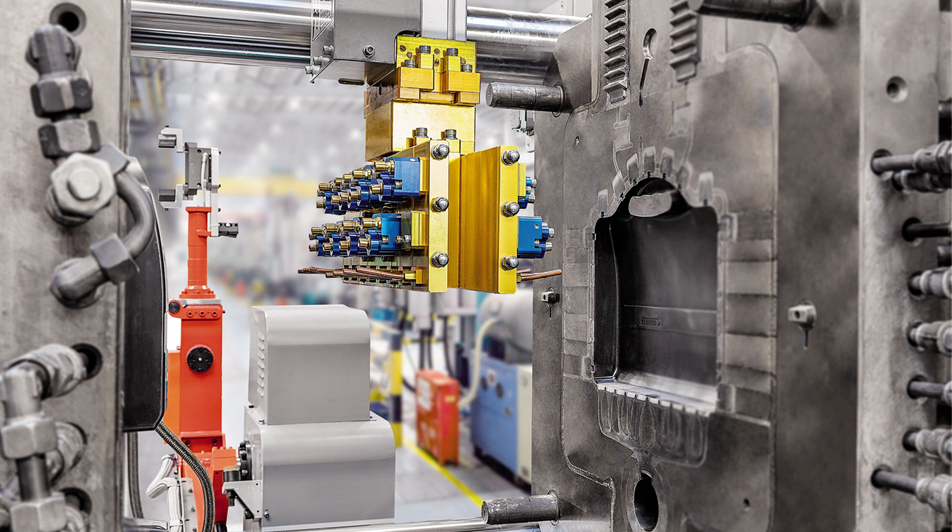Introduction
Aluminum is a widely used metal in various industries due to its numerous advantages, including lightweight, high strength, corrosion resistance, and excellent thermal conductivity. However, the inherent property of aluminum to form a natural oxide layer on its surface can limit its performance in certain applications. To overcome this limitation, aluminum conversion coating has been developed and widely employed to enhance the surface properties of aluminum, providing improved durability, adhesion, and corrosion resistance. This article aims to provide a comprehensive analysis of the benefits offered by aluminum conversion coating.
Understanding Aluminum Conversion Coating
Aluminum conversion coating is a surface treatment process that involves the application of a chemical solution to the aluminum surface. This process promotes the formation of a thin and protective layer, typically composed of metal oxides or phosphates. The conversion coating can be applied by various methods, including immersion, spraying, or brushing, depending on the desired properties and specifications.
Key Benefits of Aluminum Conversion Coating
1. Enhanced Corrosion Resistance
One of the most significant advantages of aluminum conversion coating is its exceptional corrosion resistance. The conversion coating acts as a barrier, protecting the underlying aluminum from moisture, chemicals, and other corrosive elements. This property is vital in applications where aluminum is exposed to harsh environments, such as marine and aerospace industries. Additionally, the conversion coating can act as a primer, improving the adhesion and durability of subsequent coatings, such as paints or powder coatings.
2. Improved Adhesion
Aluminum conversion coating significantly enhances the adhesion properties of aluminum surfaces. By creating a microscopically rough surface, the conversion coating provides a better bonding surface for subsequent coatings, adhesives, or sealants. This improved adhesion is crucial in applications where strong bonds are required, such as automotive parts, electronic components, and architectural structures.
3. Electrical Insulation
The conversion coating process can also introduce electrical insulation properties to aluminum surfaces. By incorporating specific compounds into the conversion coating solution, the treated aluminum surface can exhibit excellent electrical resistance. This property is advantageous in electronic and electrical applications where the aluminum component needs to be isolated from electrical currents or prevent unwanted electrical discharge.

4. Aesthetic Appeal
In addition to its functional benefits, aluminum conversion coating can also enhance the aesthetic appeal of aluminum surfaces. The conversion coating can be tailored to provide various colors, textures, or finishes, allowing for customization to meet specific design requirements. This is particularly relevant in industries such as architecture, automotive, and consumer electronics, where the visual appearance of aluminum plays a crucial role in product differentiation and consumer preference.
5. Environmental Friendliness
Compared to alternative surface treatment methods, aluminum conversion coating is considered more environmentally friendly. The process involves the use of non-toxic chemicals and generates minimal waste, reducing potential environmental hazards. Furthermore, aluminum itself is highly recyclable, making it a sustainable choice for various industries.
Conclusion
Aluminum conversion coating offers numerous benefits that enhance the performance, durability, and aesthetics of aluminum surfaces. Its exceptional corrosion resistance, improved adhesion, electrical insulation properties, and customizable finishes make it a valuable surface treatment option in various industries. When considering the potential of aluminum for specific applications, the benefits offered by conversion coating should be carefully evaluated to optimize the performance and longevity of aluminum components and products.
-

- High precision magnesium alloy die casting parts for automotive ignition lock
-

- Magnesium alloy thixomolding components
-

- Magensium mountain bike frame
-

- Integrated 3-spoke wheel for MTB with CNC machining &surface treatment
-

- Magnesium alloy Thixomolding power batter housing
-

- OEM die-casting components & parts

 0086-750-5616188
0086-750-5616188 +86 13392089688
+86 13392089688 sales@zhongmei-tech.com
sales@zhongmei-tech.com







